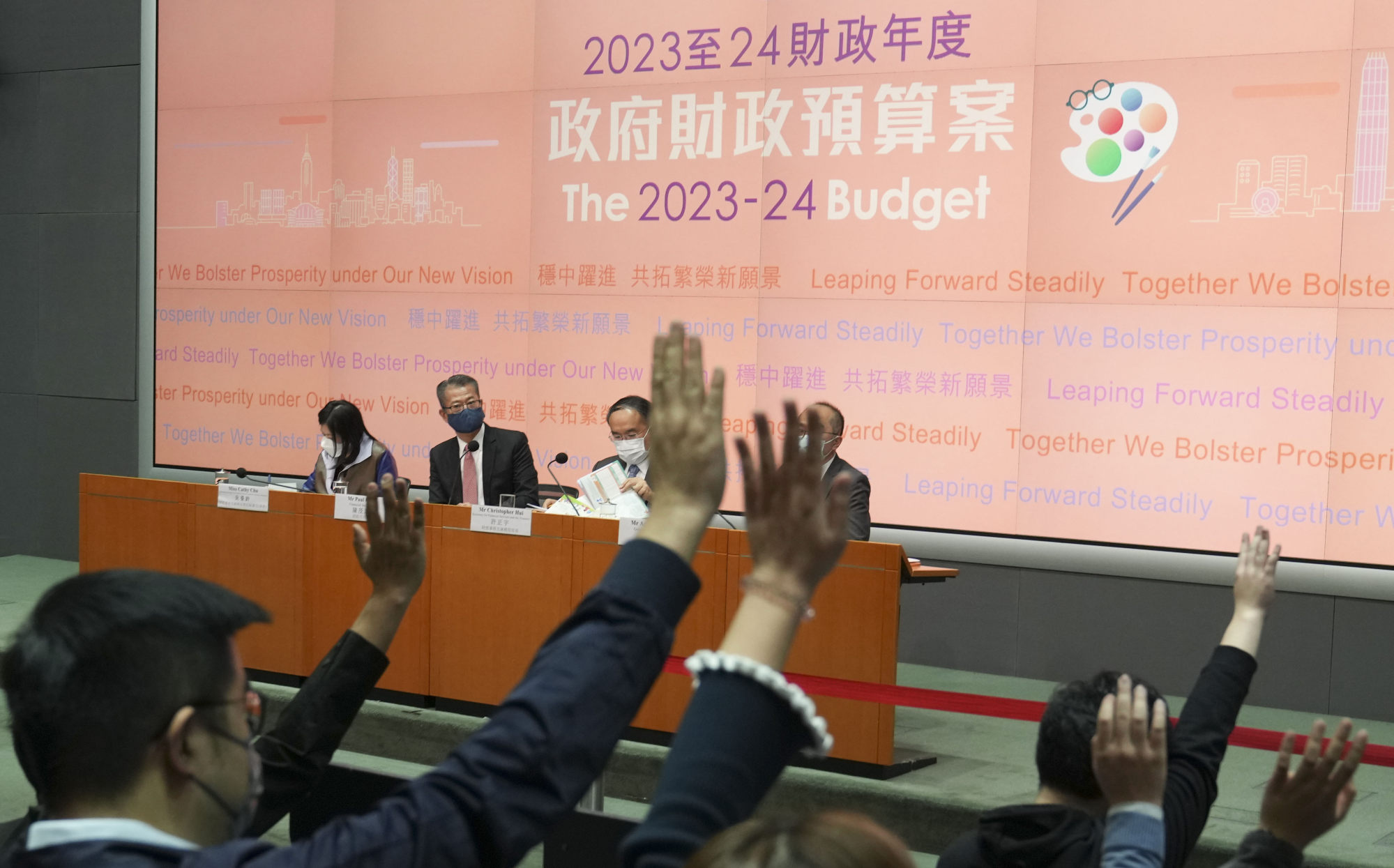
Hong Kong budget: the best remedy for the city’s ailing economy is talent
- The government’s strategy aims at expanding Hong Kong’s role as a finance, technology and trade hub to drive high-quality growth
- For this we will need skilled workers from diverse backgrounds – will they come?
The annual budget speech is one of the two occasions each year when the government sets out its thinking on economic and social development. It has two main tasks: to flesh out with more detail the various initiatives previously outlined by the chief executive, and to explain how it’s all going to be paid for.
The budget set out the government’s plans to establish or strengthen our role as an international and regional centre in many areas: green technology and green finance; innovation and technology; financial, aviation and maritime services; trade; law and dispute resolution; cultural exchange; intellectual property trading. At the heart of all these ambitions is a skilled workforce.
There is no magic number that would enable Hong Kong to fulfil its economic targets. A population that fell to 6 million would not mean we were sure to fail, and one that rose to 60 million would not guarantee success. What matters is the level of professional skills.

A discussion on RTHK’s Backchat programme last week confirmed the anecdotal evidence: migration consultants reported the calibre of client they had been helping over the past two years was overwhelmingly the highly qualified people we would want to retain if we could. This is not surprising, as they are the ones best able to take their skills to another society.
In fairness, we should acknowledge that the new administration quickly recognised the weak hand it had inherited from its predecessor in this area. Lee announced four months ago the creation of the Office for Attracting Strategic Enterprises to attract businesses and talents. Chan reported the office had already begun assisting companies in establishing or expanding their business in Hong Kong.
That is fine; our country has many talented people and we need them. By making their home here, they bolster Hong Kong’s international role while benefiting the country and themselves. But as time passes I hope the scheme will become better known further afield. We need to attract a reasonable number of foreigners from elsewhere, including Westerners, if we are to maintain Hong Kong’s international flavour.
There are several other aspects of the budget worthy of comment.
Then, there are the consequences for government reserves. The forecast deficit for the 2022-23 financial year is estimated to be nearly HK$140 billion (US$17.8 billion), higher than the original estimate of HK$56 billion. The fiscal reserves will fall to about HK$820 billion, a bit more than one year’s expenditure. This is manageable and still an enviable position compared to the massive accumulated debt in other advanced economies such as the United States and United Kingdom.
So Hong Kong is facing big challenges. What’s new?
As a qualified accountant, Chan knows well that such proceeds help with cash flow but they are not revenue in the accepted sense. They are debts that need to be repaid. The argument, which I accept, is that surpluses and deficits should be judged over the whole economic cycle, not just a few years of strong or weak circumstances.
Mike Rowse is the CEO of Treloar Enterprises


